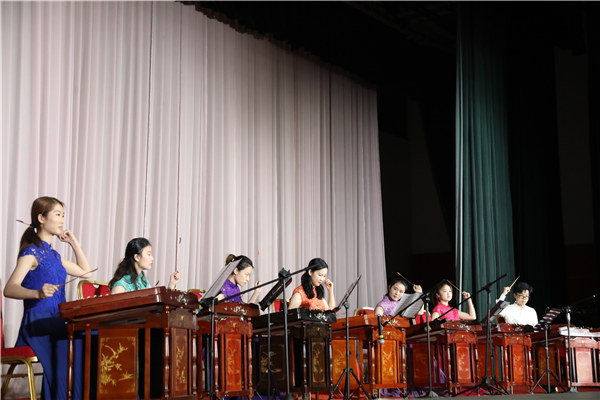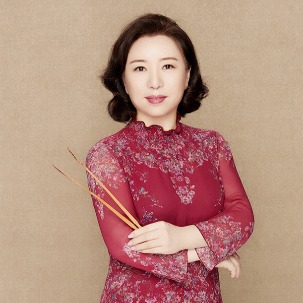Hither & thither, the majesty of a zither


His early learning was from a blind yangqin master, Lei Ziyun. In fact, Fu says, at the time most of the folk musicians in Sichuan province were visually impaired.
In order to support themselves, the musicians usually needed to master several folk music instruments and sing while playing, which became a characteristic unique to the Sichuan school.
When he was 20 he joined the Folk Art Troupe of Chengdu. Though he had two performances every day, he kept practicing yangqin whenever he could, often late into the night, covering the instrument with a piece of cloth so as not to disturb his neighbors.
Being keenly aware of the importance of preserving history, he began running around Chengdu interviewing local folk performers, first making notes and later using a recorder when he was studying musical composition at the Sichuan Conservatory of Music.
"In 1976 I bought a cassette recorder that cost me 800 yuan ($113). It took me about five years to save for that recorder, because at the time I earned only about 50 yuan a month."
In 1988 he finally completed his oral history project - a term he says he was not even aware of at the time. On 278 cassettes he recorded the voices of 40 or so blind folk musicians, all of whom have since died.
He attended the dulcimer festival in Beijing hoping to find somebody to digitalize the audio and text material, an urgent task, he says.





































